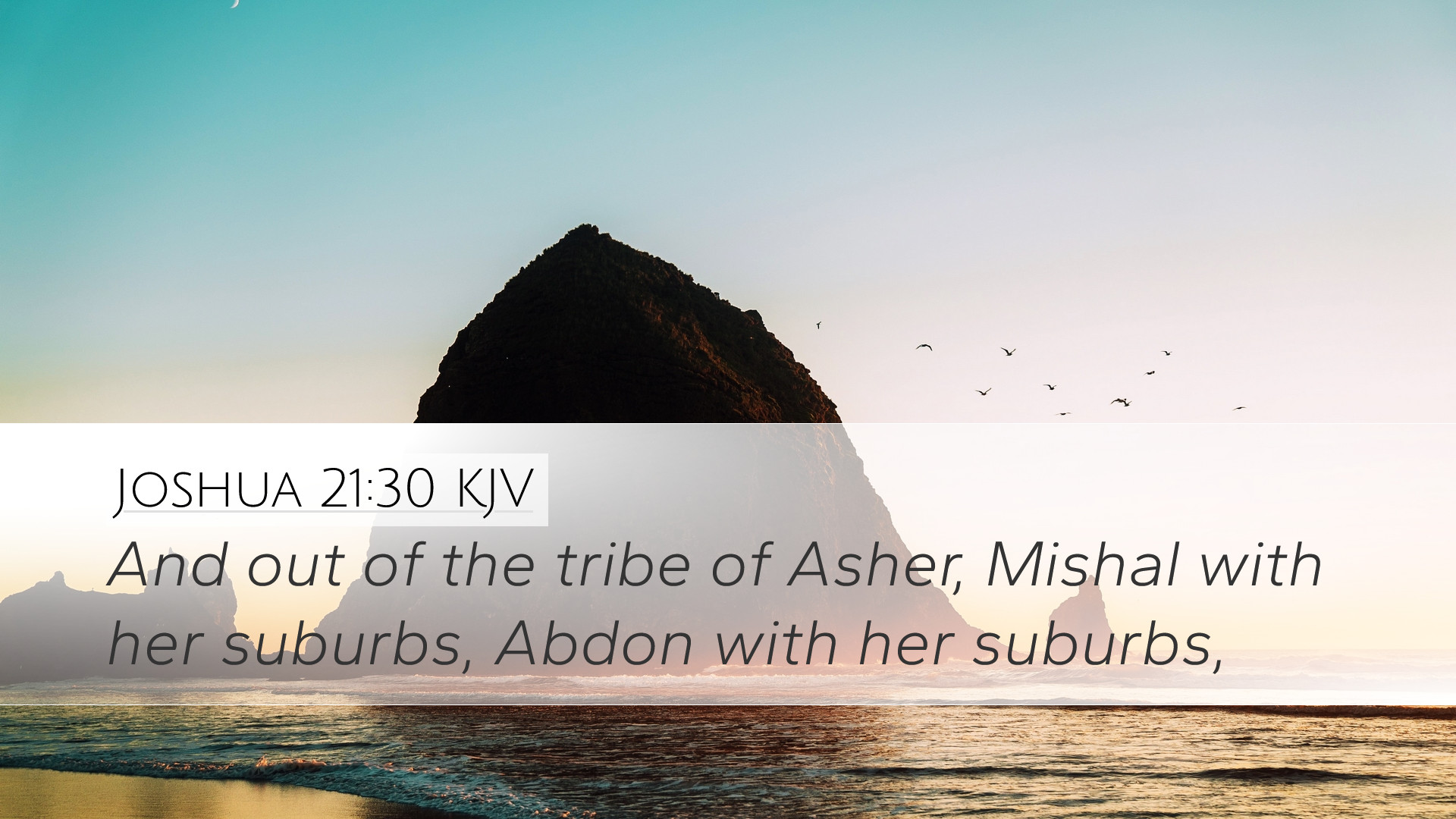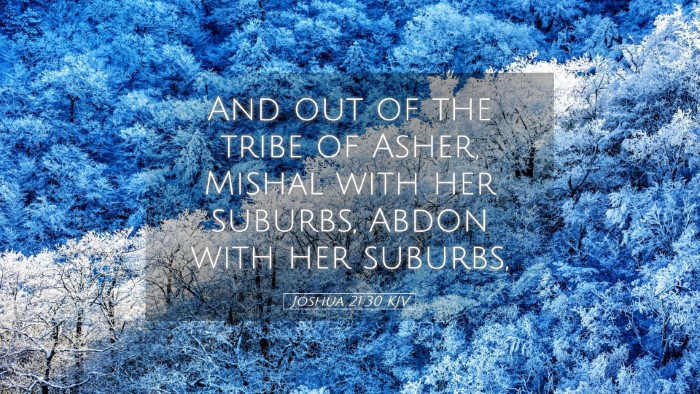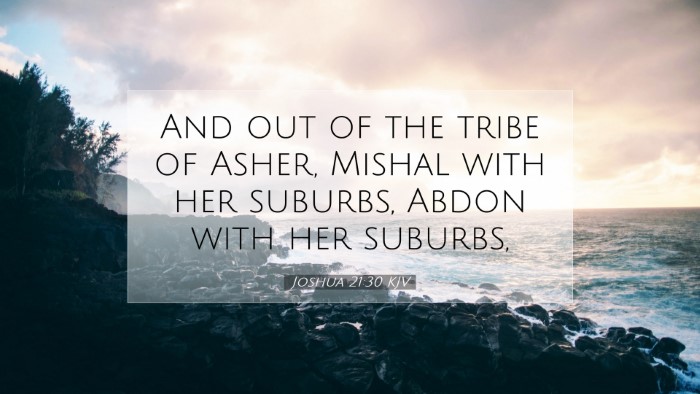Commentary on Joshua 21:30
Text of Joshua 21:30 (KJV): "And from the tribe of Naphtali, Kedesh in Galilee with her suburbs, to be a city of refuge for the slayer; and Hemath with her suburbs, two cities."
Introduction
The passage of Joshua 21:30 touches on the allocation of cities, particularly those designated as cities of refuge, which hold special significance in the Israelite legal and social system. This commentary draws from the insights of esteemed theologians of the past, such as Matthew Henry, Albert Barnes, and Adam Clarke, providing a rich tapestry of understanding for clergy, students, and scholars alike.
Contextual Background
This verse is situated within the broader context of the Israelite conquest and settlement of Canaan. After the defeat of various kingdoms, the Levites were provided specific cities to dwell in, highlighting their unique role within the Israelite community. The cities of refuge were established to offer sanctuary for those accused of manslaughter, ensuring that justice was tempered with mercy.
Significance of the Cities of Refuge
Matthew Henry's Insights: As noted by Matthew Henry, the cities of refuge were not merely places of physical safety but symbolized God's provision for justice and mercy. The allocation of Kedesh in Galilee as a refuge city serves to underline the protective measures in place for those who would inadvertently take a life.
Albert Barnes elaborates: He points out that these cities were strategically located to be accessible to the Israelite populations. This accessibility demonstrated God's concern for the welfare of all people and His ultimate desire for justice. The naming of specific cities emphasizes God's providential care over the nation of Israel, ensuring that even in moments of tragedy, there is a means for grace and restoration.
Theological Implications
Adam Clarke reflects on the spiritual implications: He draws parallels between the cities of refuge and Christ as our ultimate refuge from sin and judgment. Just as the cities served as a sanctuary for the accused while they awaited trial, so too does Christ offer shelter for those who seek forgiveness and redemption.
The Role of the Tribe of Naphtali
The tribe of Naphtali, given the cities of Kedesh and Hemath, showcases how God's plans incorporate all tribes and people, affirming that each has a role in His divine schema. The choice of these cities was perhaps also meant to establish a central position in Galilee, further affirming God's strategy in the redemption narrative.
- Kedesh: This city is significant not only as a city of refuge but as a historical site linked to Deborah and Barak's military exploits (Judges 4). Its strategic placement reveals God's master plan in the unfolding narrative of Israel.
- Hemath: Less prominent in historical records, Hemath serves to illustrate that God's provisions are comprehensive, caring for both major and minor cities in the tribal structure.
Reflection on Justice and Mercy
Both justice and mercy are key themes in Joshua 21:30. These cities reflect a balance between the need for societal order and the grace extended to those who have erred. Matthew Henry notes that God's laws are established not only for the maximum punishment but also for the opportunity of repenting and returning to fellowship with Him.
Pastoral Applications
This passage holds vital lessons for pastors and theologians in their ministry. The understanding of cities of refuge can stimulate deeper discussions around themes of forgiveness, mercy, and the compassionate nature of God's justice system. Leaders are called to reflect this balance within their congregations, encouraging a culture where grace prevails without undermining the divine order.
Conclusion
Joshua 21:30 encapsulates profound theological principles and insights into God’s character as both just and merciful. The writings of Henry, Barnes, and Clarke illuminate this passage, inviting reflection on how these ancient practices resonate with modern faith. As we engage with the text, may we be reminded of God's unwavering commitment to justice, refuge, and redemption, calling each of us to extend the same compassion in our communities.


